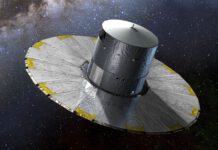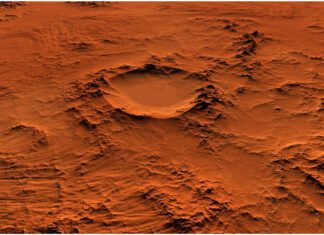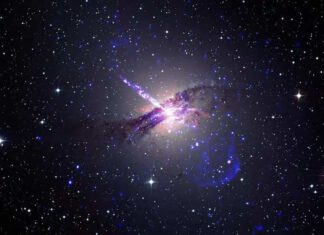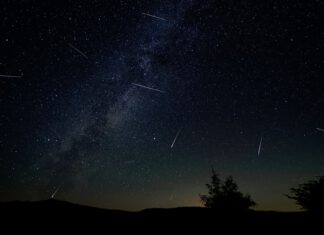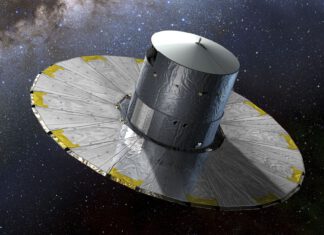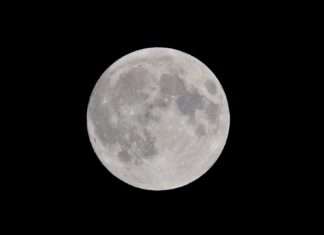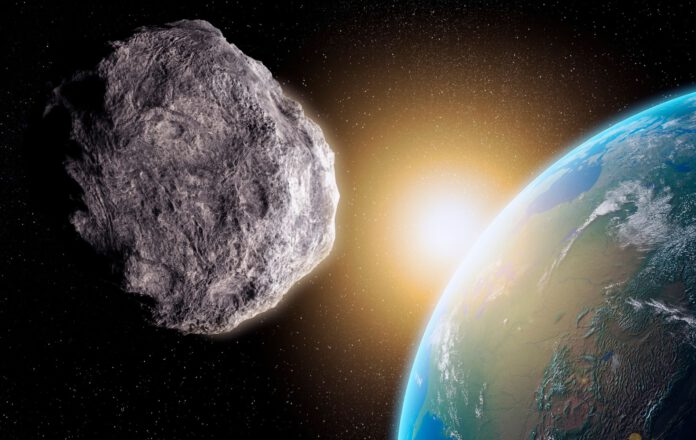
Apophis Asteroid: A Receding Threat to Planet Earth
Granted, there are plenty of other global concerns that could keep you awake at night. However, we can now cross off the Apophis asteroid – once identified in 2004 as one of the most dangerous asteroids – from that list.
Astronomers bring forth this reassuring news in a new study that is soon to be published in the Planetary Science Journal. Their study revolves around Apophis, a space rock discovered in 2004, which scientists had immediate concerns about. With a diameter of approximately 335 meters, the asteroid is quite large and frequently ventures close to Earth. Initially, predictions indicated that Apophis would pass very close to Earth in 2029 and even had the potential to collide with our planet in 2036, which could have catastrophic consequences. Fortunately, further observations of the asteroid and more accurate understanding of its trajectory revealed these concerns to be unfounded. More recent research suggests we have nothing to fear from Apophis for the next 100 years.
The Possibility of Collision?
While this news may encourage a sigh of relief, researchers Paul Wiegert and Benjamin Hyatt hold a different perspective. Although the path of the asteroid poses no immediate threat to Earth, a future collision altering its course could bring an unexpected twist. Hyatt explains, “Since Apophis passes so close to the Earth, there’s a possibility that a deviation from its current trajectory could bring it even closer to us. Hypothetically, another asteroid colliding with Apophis could cause such a deviation. This led us to explore this scenario, however unlikely it may be.”
The Research
Thoroughly, Hyatt and Wiegert examined the paths of all known asteroids – approximately 1.3 million of them – to determine if any could potentially collide with Apophis. “We calculated the trajectories of all known asteroids using detailed computer simulations of our solar system,” Wiegert says. “The good news is, according to our current observations, such a collision is unlikely.”
Astronomical Vigilance
Despite the lack of imminent threat, astronomers remain vigilant, keeping a close eye on Apophis. Wiegert elucidates, “Since its discovery in 2004, asteroid Apophis has fascinated us and even though we are confident it will miss us, we continue to maintain our watchful gaze.”
A Focus on Xanthus
While Hyatt and Wiegert have been studying Apophis, they have also found interest in other areas. For instance, Xanthus, another asteroid, crosses paths with Apophis. In late 2026, the two asteroids will pass a common point within four hours of each other. While a collision between the two can be ruled out, there is a chance that debris from Xanthus could strike Apophis, the researchers point out in their study. Even a small fragment, 10cm in size, could potentially deflect Apophis from its current trajectory over a long enough period. However, with current telescopic technology, it’s difficult to determine whether Xanthus is shedding debris or not.
Future Research
Besides Xanthus, the study also mentions several other asteroids that Apophis will pass in the coming years. Although a direct collision is extremely unlikely, some like Xanthus, could potentially shed debris that breezes past Apophis. There are also a few asteroids with few observations on record, which makes predicting their potential for collision with Apophis more challenging.
Despite these factors, the scientists’ conclusion remains largely unchanged. As they write in their study, “The chance of a known minor celestial body in our solar system – or material stemming from it – colliding with Apophis is extremely small.” However, vigilance is still called for. “Because of the danger that can be associated with even a small disruption in the trajectory of this asteroid, there is ample reason to assess the risk as accurately as possible. We highly encourage further research efforts directed towards this end.”




